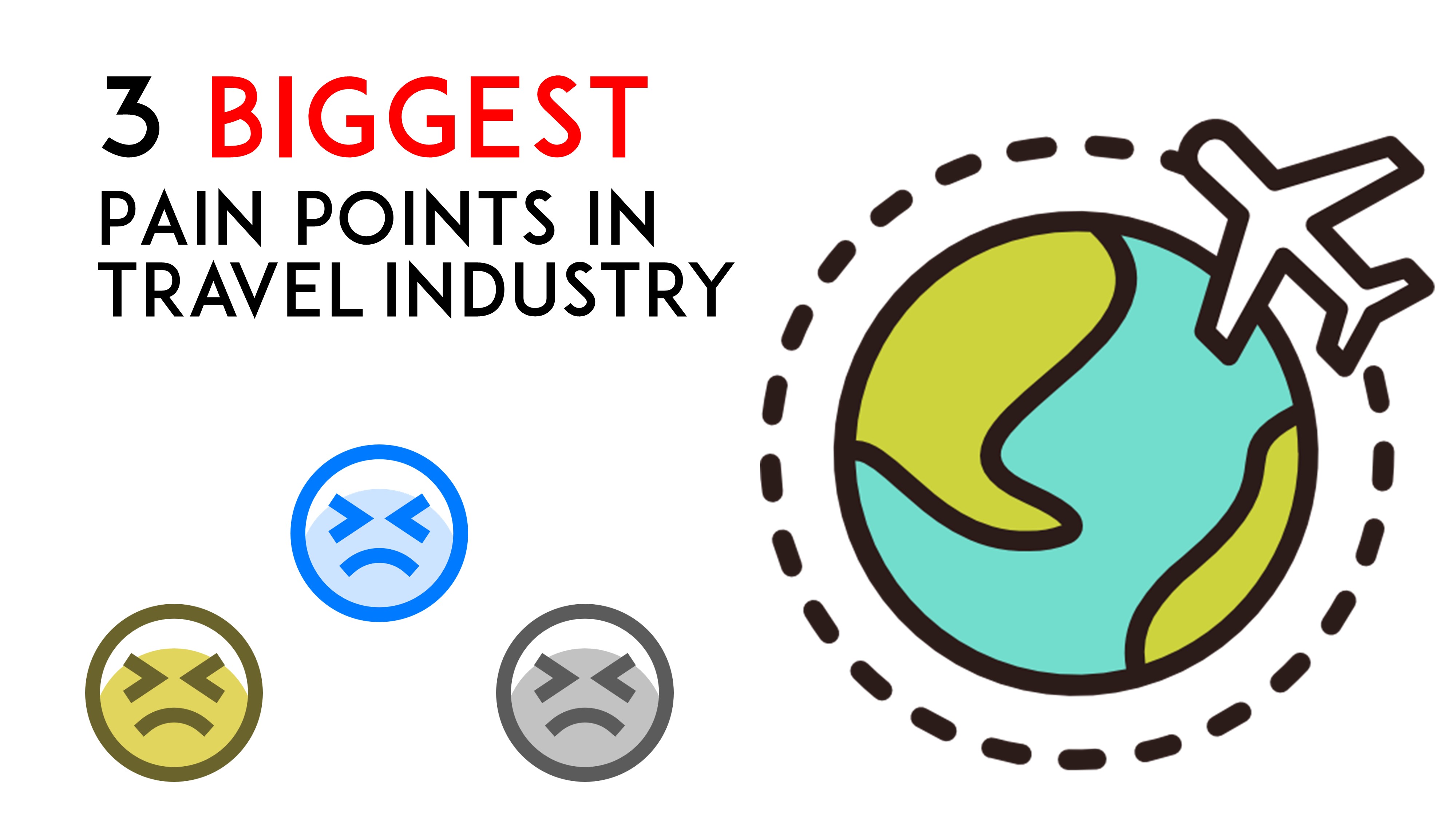
How Blockchain Could Wipe Out 3 Biggest Travel Industry Pain Points
The hospitality and travel industry are undergoing rapid changes. It is alive, exciting, and competitive.
In the traditional tourism industry, three main pain points have seriously affected the tourists’ experience and the healthy and sustainable development of the industry.
Before we continue, here are some vital stats to take note of:
✓ In 2015, global international tourism revenue reached approximately 1.26 trillion U.S. dollars, having almost doubled since 2005. That year, China had the largest international tourism expenditure, followed by the United States and Germany.
✓ The leading city in international visitor spending was Dubai, where tourists spent more than 31.3 billion U.S. dollars in 2016.
✓ Worldwide, the tourism industry has experienced steady growth almost every year. International tourist arrivals increased from 528 million in 2005 to 1.19 billion in 2015. Figures were forecasted to exceed 1.8 billion by 2030.
✓ This year, online travel sales are expected to reach $198 billion. More than 140 million U.S. adults will research a trip online. (Social Media Today, 2018)
Pain Point #1: Private Information Is Overexposed

Post-September 11, several measures have been implemented to improve aviation security. We’ve witnessed improved training for airport screeners, the checking all bags for bombs, strengthened cockpit doors, and air marshals on flights. They do not implicate privacy interests but are sound security measures.
But while traveling abroad, travelers need to present their identity documents, i.e. for purchasing flight ticket, visa application, hotel reservation, buying insurance, car rental and tax refund.
In each authentication process, travelers’ information is being exposed to third parties, which technically means they are giving away their own private information.
So every time the travelers need services from various service providers, they’ll reveal their sensitive personal details to them.
And these service providers cannot guarantee that the sensitive data won’t be hacked or lost as the data is shared from server to server.
TrueMove H, the mobile phone arm of Thailand’s largest pay-TV operator True Corp., has exposed data, including that of tourists, in April this year. The data primarily consisted of scans of identity documents, specifically Thai ID cards, drivers licenses and foreign passports.
Pain Point #2: High Agency Fees

The online travel agents (OTA) were initially adopted by hotels as a means to clear unsold inventory. However, the entry and rapid expansion of OTAs are now revolutionizing the travel industry.
Hotel booking has become more centralised and is dominated by a small number of OTAs, including Expedia and Priceline.
On the surface, OTAs showcase a huge range of choices to consumers in a user-friendly manner, something an individual hotel is unable to do.
In fact, they are disrupting the free market in travel accommodation.
These giants trade behind closed doors through price manipulation. They have successful excluded new industry entrants and shaped an anti-competitive global travel market merely for maximum return in their pockets.
Hotels now rely heavily on OTAs for online sales, and not just as a channel for clearing unsold inventory. They’ve to now work with third-party booking sites often at a disadvantage.
In addition, OTAs charge hotels with commissions. The high distribution costs force the hotels to raise the price rates just to offset their business costs. The monopolies of the tourism giants have increased the number of intermediaries.
Eventually, these costs are passed on to the travelers.
Pain Point #3: More Hacks To Come

Plenty of social platforms, OTAs and even financial companies are still using centralized databases with a single control point to store users’ identity information.
This carries a very high risk of being attacked, and results in users’ sensitive data being stolen and leaked.
In 2016, Ctrip platform was attacked, resulting in more than 100 million travelers’ data stolen and sold in the market.
Equifax, the largest credit information company in the United States, also lost hundreds of millions of users’ information in 2017. The hackers’ attacks revealed 140 million of users’ private data. The US population is about 326 million, which means information on nearly half of the population had been leaked.
These cases have highlighted the potential security problems of centralized data storage. It’s time to adopt the more feasible and reliable blockchain technology.
Blockchain To The Rescue!

World Trip Singapore wants to replace the traditional centralized model with a blockchain system.
Blockchain based crypto-economic systems allow the removal of the middlemen from business processes. Removing the middlemen allows businesses to be built as ecosystems, rather than silos such as traditional hotel booking platforms.
The data that powers those processes, be it reviewing tour experiences or user registrations, is decentralised. This means that no party can act dishonestly by controlling the data and no single party has to maintain the data, because it is maintained on a public network.
If business agreements can happen without a need to trust and employ a third party, ALL the pain points mentioned above can be reduced or removed.
Although blockchain technology can disrupt industries and put businesses back in charge of their capital and expenditure, the lack of regulation has hindered its universal adoption so far.
Nevertheless, with more high-profile institutions like Rabobank experimenting with blockchain and governments issuing their own digital currency like Venezuela’s Petro, this situation is likely to change.
At the dawn of a tokenized economy, the travel and hospitality industry is aching for a change to stay afloat, and blockchain holds the promise to redefine and re-standardize business processes in this sector.
